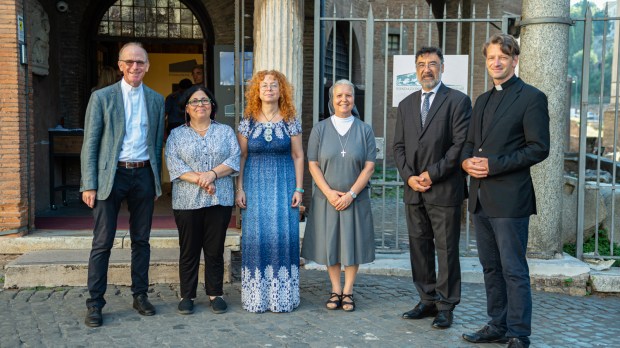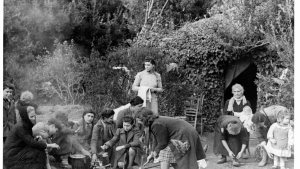Around 3,200 Jews fleeing Fascist and Nazi persecution during the Second World War took refuge with some 155 Catholic congregations in Rome, says a press release published by the Holy See on September 7, 2023. This information sheds new light on the protection of Jews during the Holocaust and was confirmed through the rediscovery of an important historical document in the archives of the Pontifical Biblical Institute in Rome.
This list of names had been cited by the historian Renzo de Felice in 1961 but the original documentation had been considered lost. The newly found document does not only include names of Jews: 4,300 people are mentioned, of which 3,600 are named. By cross-referencing these names with the archives of the Jewish community in Rome, the oldest in Europe, the researchers were able to indicate that at least 3,200 of those on the list were Jews.
This precious document provides information on the tragic fates of these people, as it sometimes includes the place where they lived, or the building of the congregation where they were sheltered. During this period, the persecution of Rome’s Jews led, among other things, to the deportation and murder of almost 2,000 people, including hundreds of children and teenagers, out of a community of around 10,000 to 15,000 people.
A historical list with modern importance
The document was compiled by Jesuit Father Gozzolino Birolo, bursar of the Pontifical Biblical Institute, between 1944 and 1945. The rector of the Institute at the time was the future German Cardinal Augustin Bea, who became a major player in the post-war dialogue between Jews and Christians. He had a particular impact on the Second Vatican Council document on relations with non-Christian religions, Nostra Aetate.
The list was presented for the first time at a seminar held at the Shoah Museum in Rome on September 7. The team in charge of studying the document includes Claudio Procaccia, Director of the Cultural Department of the Jewish Community of Rome, Grazia Loparco of the Pontifical Faculty of Educational Sciences Auxilium, Paul Oberholzer of the Gregorian University and Iael Nidam-Orvieto, Director of the International Institute for Holocaust Research at Yad Vashem. They work in collaboration with the Pontifical Biblical Institute.
The question of the Catholic Church’s response to the Holocaust during the Second World War has been the subject of much discussion and controversy. The opening of the archives concerning the pontificate of Pius XII in 2020 has shed new light on this complex period.




